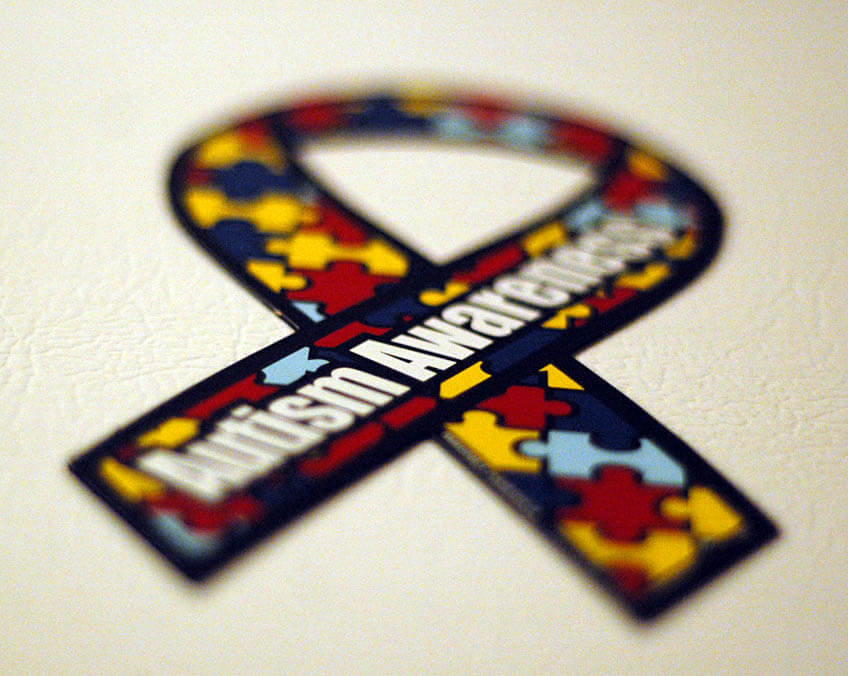BATH, United Kingdom — For people diagnosed with autism at an early age, it’s often just a normal part of who they are by adulthood. For those that receive the diagnosis in their 20s, 30s, 40s, or even older, it can be a lot more difficult to navigate. However, psychologists in the United Kingdom say that a late diagnosis doesn’t have to be a bad thing.
This research, conducted by a team from the University of Bath and King’s College London, is the first to take a look at whether the age someone learns they’re autistic affects quality of life, after accounting for several factors. The team asked 300 autistic adults to report the age when they first found out they were autistic, as well as factors like their current age, sex, ethnicity, relationship status, living status, education level, employment status, household income, and the presence of other mental health conditions. Study authors also measured level of autistic personality traits.
The participants also answered questions on different aspects of their quality of life. Those questions included: “To what extent do you feel your life to be meaningful?” and “How satisfied are you with the support you get from your friends?”
The findings showed that there was no statistically significant association between the relationship between the age at which someone becomes aware they’re autistic and the different areas of quality of life. In fact, other factors seemed to matter more. For example, autistic women reported a better quality of life than autistic men. Additionally, people who had other mental health conditions like anxiety reported a lower quality of life.

“More and more people are finding out they are autistic for the first time as an adult, which can be a life-changing realization. Because we know that many autistic people experience a very poor quality of life and wellbeing, this begs the question whether finding out you are autistic earlier in life improves outcomes,” says Senior Research Fellow at the University of Bath and Lecturer in Psychology at King’s College London, Dr. Lucy Livingston, in a university release.
“Our findings did not suggest this. For some people, finding out they are autistic sooner rather than later was linked to a better quality of life. For others, finding out later was better. Overall, there was no overall link between the age they found out and their quality of life,” Livingston continues.
“There could be many reasons for this. Getting an autism diagnosis does not always lead to any meaningful additional support, so it could be that autistic people who learn they are autistic at an earlier age did not necessarily experience a benefit to their life quality. Equally, a late diagnosis in adulthood can be a positive experience, helping people to make sense of themselves, which may improve their self-reported quality of life. The take-away message is that the impact of an autism diagnosis on someone’s quality of life is different for everyone. And there may be other, individual factors that are more important to focus on.”
Usually, the most extensive care and medical attention is given to autistic children. These findings not only offer perspective for better understanding autism in adulthood, but it helps strengthen the possibility for more widely-available individualized care.
“Our research more generally adds to a better understanding of neurodiversity across the lifespan. Autism, for a long time, was thought about as a childhood condition. Many still think this way. But people may not realize that most autistic people, in the UK for example, are now actually adults. With an aging society, this pattern will increase over the next few decades, so it is critically important that we conduct more detailed investigations into individual differences amongst autistic adults, as we have done. Such autism research in adults will thereby start to reveal the many different ways in which we can understand and support autistic people right throughout their lives, moving beyond a ‘one size fits all’ approach,” says Dr. Punit Shah, a study co-author and associate professor at the University of Bath.
The findings are published in the journal Autism.
What is autism?
Autism, or autism spectrum disorder (ASD), is a complex neurodevelopmental disorder characterized by differences in social interaction, communication, and behavior. It is called a spectrum disorder because it affects individuals in different ways and to varying degrees. People with autism may have difficulties with social skills, repetitive behaviors, speech, and nonverbal communication, but they can also possess unique strengths and talents.
The exact cause of autism is still not fully understood, but it is believed to involve a combination of genetic, environmental, and neurological factors. There is no single known cause, and research is ongoing to better understand the disorder. Early diagnosis and intervention are important for improving outcomes and helping individuals with autism lead fulfilling lives. Treatments for autism may include behavioral therapy, speech therapy, occupational therapy, and other support services tailored to the specific needs of the individual.


Perhaps had I known I was ‘In The Spectrum’ before I was almost 80 years old, I would have had a better understanding why I don’t socialize, and why I do or say inappropriate things. Actually, my daughter who is head of school for a K – 5 private school was the one who pointed it out to me as if ‘you didn’t know’. After considering what she said and looking back over my life, I could see the patterns.
It did fit in with my life as a software designer/developer so I chose an appropriate career. Probably the one thing that saved me over the years was a higher than average intelligence (120+)